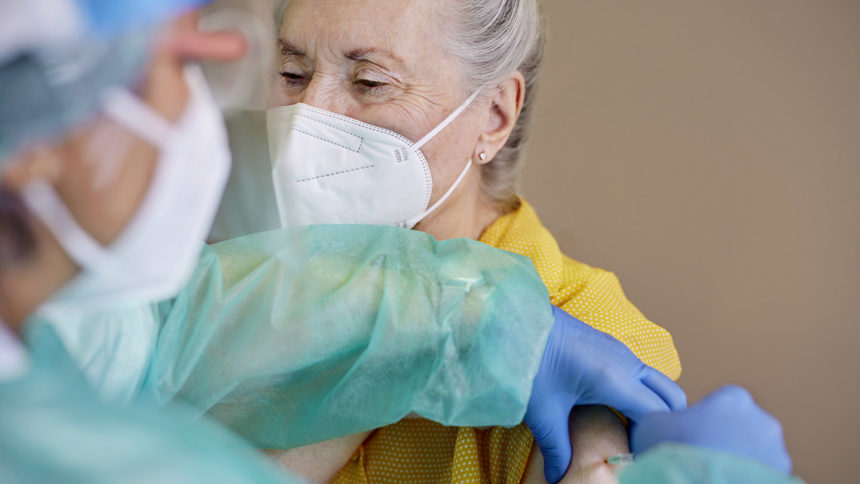
Older adults are much more likely to get vaccinated against COVID-19 than younger adults regardless of their political beliefs or affiliation, new research has found.
In addition, investigators were surprised to discover that consuming more COVID-19 information led to lower vaccination rates, a finding that extended across all political lines.
“There’s been a lot of attention to political ideology as a barrier to COVID-19 vaccination acceptance,” Glen Nowak, corresponding author of the study and professor in the Grady College of Journalism and Mass Communication at the University of Georgia, said in a news release. “What we found in our survey was that’s not so much true as people get older. People who are 65 and older are almost universally vaccinated, particularly as you start getting to 75 and older.”
A nationally represented survey of more than 1,000 people asked questions about participants’ age and sex, political ideology and news preference and how it impacted their views on COVID-19 and vaccinations. Results of the study were published in the International Journal of Strategic Communications.
The study found that older Americans ages 50 and above who were at higher risk of getting serious illness from COVID-19 were more likely to get vaccinated than younger adults, who consider themselves at lower risk. Older adults tended to be more concerned that catching the virus would negatively impact their lives.
While older people were more likely to get vaccinated regardless of political affiliation, the study did find significant differences in individuals’ views of COVID-19 and the vaccine depending on their political beliefs and where they get their news. Liberals in the study tended to view the virus as a much more serious threat in their lives than conservatives and also were more likely to get the vaccine and trust authority figures like the CDC and FDA.
Researchers said one of the most surprising findings was that both liberals and conservatives who said they received COVID-19 information from a variety of sources were less likely to be vaccinated than individuals who drew strictly from partisan sources.
“If you had asked us before this study, we would have said pretty confidently that people who were looking at a wide array of information would be much more likely to be vaccinated and have much more confidence in the vaccine,” Nowak said. “What this suggested was the opposite in many instances. Many people who tried or said that they looked at a broad spectrum of information sources came away less confident and more uncertain about the vaccine and its value.”
Nowak said in the release that the study highlights the need to tailor COVID-19 messaging to different populations to ensure that the highest number of people get vaccinated.





